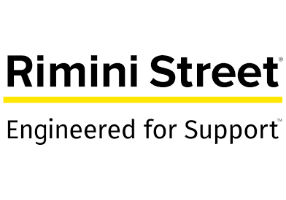
In the same spirit of picking your premiership fantasy league team, we asked our service delivery managers to name the elite eight qualities that hiring managers should look for in potential candidates. The suggestions encompass technical know-how and the interpersonal skills that build relationships and high-performing teams. Their lineup includes:
- Listening
- Collaboration
- Communication
- Integrity
- Problem solving
- Accountability
- Discipline
- Flexibility
Elite 8 Skill: Listening
When high-pressure situations arise, an IT staff member needs to act quickly by understanding the problem. “If they are unable to listen to what the client or their colleagues are saying, they are not going to be effective,” says Craig Mackereth, senior vice president of global support.
Mackereth identifies this quality in candidates by asking questions that require an in-depth answer. For example, have them describe a real-world scenario and be very specific in the details you ask them to provide in their answers. This lets you know if they can listen and follow directions while under interview pressure.
Flagrant foul: Not answering the question as asked.
Elite 8 Skill: Collaboration
“We work in an agile environment which centres around cross-functional teams who work closely together, leveraging all of their skills and experiences to deliver for our clients,” says Paul Henville, senior vice president, global product delivery. “Proven experience with and enjoyment of working in a collaborative environment is a critical trait for our team members.”
During the interview process, Henville asks about a candidate’s experience in agile environments and listens for examples of team orientation versus self-orientation. Focus on replies where the candidate uses “we” instead of “I” when sharing their examples.
He also advises looking carefully to make sure they’re providing examples of truly working together rather than working adjacently and relying on handoffs. In this response, you want to hear how candidates worked with others as opposed to doing work in a silo and throwing it over the wall to another part of the team.
Flagrant foul: Not acknowledging the efforts of the team.
Elite 8 Skill: Communication
“We are in an explosively connected and ever-changing world where the new speed at which we conduct business is faster than ever. The ability to communicate across multiple channels is a strong indicator of success,” says Heather Sepolen, vice president, chief of staff, global service delivery.
Sepolen recommends asking open-ended questions that give candidates the freedom and space to provide detailed answers. This approach allows you to validate their ability to express ideas clearly. Direct questions also help her determine a candidate’s philosophy on the value of communication. Examples include:
How would you describe good/effective communication?
What are your communication strengths and weakness?
In addition to evaluating verbal communication skills in the interview, follow up via email with a question that allows you to assess their written communication skills.
Flagrant foul: Inability to stay on topic.
Elite 8 Skill: Integrity
Says Mackereth: “Honesty is the best policy — it’s not a catchphrase.”
To gauge integrity, he asks disarming questions that force reflection and that must have an answer. Big red flags, according to Mackereth, are if the candidate dodges the question, is unable to think of an example, or just talks in terms of theory. An example is this: It’s been great to hear about your successes, but tell me about a time you were involved with a project failure. Why did it fail, and what could you have done differently?
Hiring managers should also keep a keen ear out for inconsistencies between responses. Ask about experience with a particular software, for instance, then follow up with a specific question about its use. If they can’t answer the specific question or their answer doesn’t make sense, it could indicate that they’ve been less than truthful.
Flagrant foul: Lying in the interview.
Elite 8 Skill: Problem Solving
The ability to identify a problem, come up with and implement the solution, and evaluate its effectiveness is critical for Sepolen. “Anything that can be disrupted is being disrupted, and candidates need the ability to quickly identify and solve issues while adapting to the constant change,” she says.
To probe for this trait, she asks questions that require a candidate to describe in detail how they faced unexpected challenges at work. In the answer, she listens for the process the candidate uses to move from problem to solution more than the solution itself. In doing so, she’s able to get a feel for how they approach problems instead of being swayed by a clever fix.
Flagrant foul: A quick answer that lacks details.
Elite 8 Skill: Accountability
Accountability is required to build trust within the team. “If someone makes a mistake, they need to own it and work with the team to make improvements,” says Henville. “In this way, the team works to become self-organizing as they identify their own opportunities to improve and commit themselves to reach higher levels of performance.”
Henville advises listening for key factors such as transparency, keeping commitments, and offering to help others. Ask the candidate to provide an example of a time that they made a mistake and how they handled it. Are there indications of humility and growth? For example, a candidate should express a willingness to take the initiative when a mistake is made, to be accountable for it, and to own the solution. You want to hear how they worked towards a greater goal as opposed to just keeping their heads down, focused on short-term tasks and waiting for their manager to tell them what to do.
Flagrant foul: Placing blame on others.
Elite 8 Skill: Discipline
You don’t want anyone on your team cutting corners to the detriment of their fellow teammates or clients. “Because we are in the business of 24/7 delivery of service to clients, having disciplined engineers makes a huge impact to our service delivery,” says Mackereth.
He asks how a candidate was measured in prior roles. Pay particular attention to how they react when you probe into their performance. If there was a service-level agreement (SLA), did they deliver? If there was a project, did they come in under budget and on schedule? Drill into the successes and learn if they were a result of disciplined effort or good fortune. Beware if they suggest ways that they could’ve hit milestones by skimping on deliverables.
Flagrant foul: Compromising quality to meet deadlines.
Elite 8 Skill: Flexibility
Teams in an agile environment should always look to improve and experiment with new ways of working. “All team members must be open to change and skilled in quickly adapting,” says Henville.
He asks the candidate to provide an example of change that came from an external source and how they handled it. He listens for indications of open-mindedness, negotiation, and problem-solving. You can also ask the candidate to provide examples of how they have added to team improvement and increased quality of work. Listen for active engagement in small improvement activities on a regular basis, rather than just working on that one big “improvement project” that was finally funded and resourced.
Flagrant foul: Complaining about change
Rimini Street, Inc. (Nasdaq: RMNI) is a global provider of enterprise software products and services, the leading third-party support provider for Oracle and SAP software products and a Salesforce partner. The Company offers premium, ultra-responsive and integrated application management and support services that enable enterprise software licensees to save significant costs, free up resources for innovation and achieve better business outcomes. To date, nearly 4,700 Fortune 500, Fortune Global 100, midmarket, public sector and other organizations from a broad range of industries have relied on Rimini Street as their trusted application enterprise software products and services provider. To learn more, please visit http://www.riministreet.com, follow @riministreet on Twitter and find Rimini Street on Facebook and LinkedIn. (IR-RMNI)


























